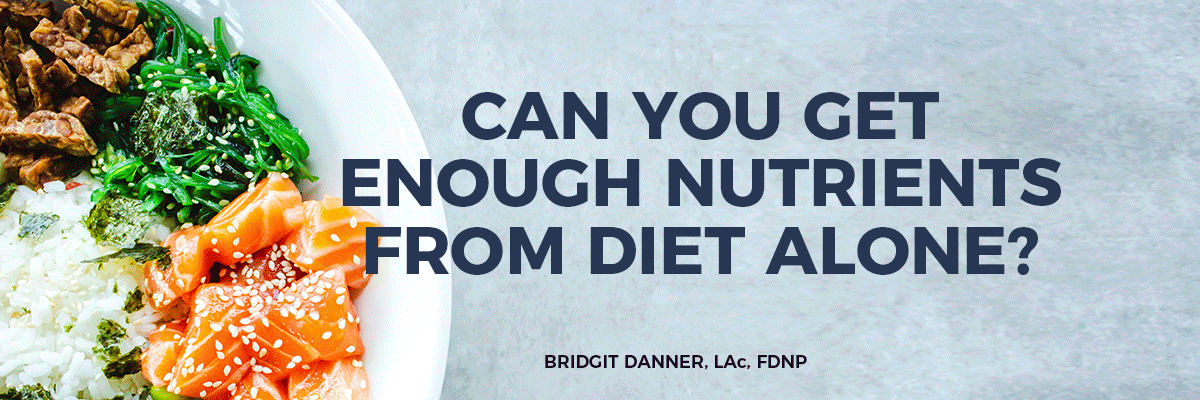Five Easy Ways to Detox the Brain
Have you read The End of Alzheimer’s by Dr. Dale Bredesen? I was surprised and impressed that Dr. Bredesen classified one of three types of Alzheimer’s as “toxic,” meaning that toxic exposure was a key factor in its development.
This trained physician embraced an integrative and functional approach and the research behind it, and investigated his own clients for toxic exposures, stress and imbalanced diets. His plans combine nutrition, meditation, herbs, detoxification and more. In other words, he’s my kind of doctor!
In this article, we take a look at the brain, how it can become affected by toxins, and ways to safely detoxify the brain.
Brain Function & Brain Detoxification
Despite Alzheimer’s disease being the #2 health fear of Americans (just after cancer), most people know very little about our brains and how to care for them. (1) Instead of thinking of our brain as an organ, we think of our brains as ‘us,’ as in, “What if I can no longer think and remember?”
But a better question is, “How do I support my brain so it can think and remember as long as I live?” This question has an answer, whereas the first question just leaves you in fear.
The brain is just an organ, like any other, but a pretty special one in all the complex tasks it performs!
The brain is an organ made of billions of neurons and billions of supportive glial cells. It is the central organ of the nervous system, and includes the central organs of the endocrine system, the hypothalamus, pineal and pituitary glands. The brain has several regions that support different functions, and the ability for brain cells and regions to communicate is important to its function. (2)
Another important aspect of brain health is detoxification. The brain is bathed in cerebrospinal fluid. The glial cells, particularly microglial cells, of the brain help support daily clean-up, among other tasks. (3) This clean-up includes clearing amyloid plaques that contribute to Alzheimer’s disease
The glymphatic system is a component of the central nervous system that detoxes the brain at night. Neuronal cells actually shrink back from one another so the body can do its clean up overnight. (4)
As I recently learned from having a concussion and a very tight neck, when this fluid can’t drain you will have issues!
Symptoms of Cognitive Decline
In the section, I want to emphasize that the ‘extreme’ symptoms of cognitive decline are usually pre-dated by less obvious symptoms. I’ll first list the ‘big’ symptoms of cognitive decline, and then some of the body’s early warning symptoms.
Forgetting words, names or people*
Forgetting numbers*
Increasingly disorganized
Inability to do math
Forgetting routes while driving
Cannot work: needs to take leave
Tremors & muscle weakness
*Please note that occasional forgetting of names, words, numbers I don’t consider to be serious, so don’t fret too much! Also note that in menopause you can become more forgetful as your brain adjusts to different estrogen levels. But I also know that optimal hormone levels, nutrition, etc. can support the brain and I do think it’s worthwhile to pay attention to these supporting factors as you age.
The following are some early warning signs that the brain may be stressed:
Loss of muscle mass
Loss of taste
Loss of appetite
Dry mouth
Cannot do mental work for long
Fatigue
Foggy thinking
Sugar cravings after meals
Being ‘hangry’
Being pre-diabetic
Hypertension
Chronic stress or physical tension
Known exposure to toxic mold, heavy metals, or chemicals
Chronic or severe infections (5)
Leaky gut
Head trauma
PTSD from any stressor
Neck pain/ears popping/headaches
Again, seeing signs on this list is far from a diagnosis of cognitive decline or Alzheimer’s disease, but there may be things you want to address now to prevent these conditions in the future.
Once the brain is damaged, some neuronal pathways can be rewired, some aspects of the brain can heal, but others may not be able to come back.
Roots Causes of Cognitive Decline
Emotional trauma
Physical trauma & surgery (6)
Toxin exposure, including mold and heavy metals
High blood pressure
Genetic factors
Gut diseases
Malnutrition
Sleep deprivation
Leaky brain & autoimmunity of the brain
Five Steps to Prevent Cognitive Decline
Diet and lifestyle are always foundational in your health care. When it comes to the brain, I emphasize a few special points.
Brain Tip 1: Eat an Organic Whole Food Diet as Much as Possible
Eating this way lowers exposure to toxins, for example, arsenic in conventionally-raised chicken. (9) Arsenic is a neurotoxin that damages mitochondrial function and negatively influences the blood-brain barrier. (10, 11)
The inflammation from dairy, wheat, sugar and processed foods can be avoided simply by reducing consumption of these items.
Eating lots of fibrous and colorful fresh foods contributes to a healthy gut that in turn contributes to cognitive function. (12) For cooking ideas, see our free Liver Recipe Guide.
Taking our MegaPre paired with our Megasporebiotic is further investment towards a happy gut. If you are constipated, try a round of our MegaMucosa. Loose stool? Try adding our Mega IgG 2000.
Eating clean fish, like wild Alaskan salmon, is important for brain and gut health. To save money, you can find wild salmon in a can from a brand like Henry and Lisa’s. I also recommend taking a daily, clean fish oil supplement.
Brain Tip 2: Exercise Your Brain and Body
Physical exercise, especially cardio and strength training, is good for your brain in the delivery of fresh blood and oxygen and in the increase of BDNF- brain-derived neurotropic factor. (13)
Mental exercise is also good for the brain! This includes learning new things as you age, like pickleball, piano, dance or a new language. Travel and new social experiences are also stimulating.
While I recovered from my concussion, I avoided the stimulation of shopping and driving, but I listened to down-tempo music on headphones and it helped my brain to both relax and learn to focus again.
Brain Tip 3: Practice Peace and Moderation for Your Brain
Drink plenty of pure water each day and aim for 7-9 hours of sleep per night. Sleeping is when your brain cleanses and you want fluids available for that cleansing process.
Avoid alcohol as much as possible, as well as over-the-counter medications like Tylenol and Advil that damage cellular mitochondria.
Do you meditate? Even 5 minutes a day can help you turn off more panicky/reactive parts of the brain and turn on areas that wire contentment. I recommend the app Insight Timer.
If you are reeling in any way from past traumas--anxiety, insomnia, loose stools, etc.-- find a good counselor and consider neurotransmitter support with herbs and supplements. Letting the after effects of trauma linger can continue to damage the brain.
I love the work of Dr. Daniel Amen and his online brain quiz is a fun way to start learning about your own brain.
Brain Tip 4: Learn Your Toxin Status and Detoxify.
The trouble with toxins is that they are generally invisible to your naked eye, so it’s hard to know how much of a problem they are for you. Are you tired because of toxins, or some other reason?
According to Dr. Bredesen in The End of Alzheimer’s, up to 500,000 Alzheimer’s cases in the U.S. may involve mold!
I love the EnviroTOX panel from the Great Plains Laboratory because it covers many non-metal toxins from things like jet fuel and pesticides. It also checks for toxic mold, Candida, Clostridia and glutathione depletion.
In our shop, this is option three of our Mold & Toxins test, and you have an option to get a private consultation to interpret and respond to your results.
We love daily DIY detox in our community! This includes methods like dry brushing, drinking lemon water, using a sauna and binders and more. Here’s a blog about 15 Low-Cost Ways to Detox.
Brain Tip 5: Supplement for Success
We sell quite a few great supplements in our shop, so it’s hard to choose favorites, but here goes:
MegaPre: This gentle prebiotic fiber helps feed your friendly bacteria that produce short chain fatty acids to repair a leaky brain.
MegaSporeBiotic: Take 2 MegaSporeBiotic, our top-selling probiotic, with 2 MegaPre with dinner for gut maintenance, but start initially with a lower dose!
MegaMucosa: This powdered drink soothes the gut and builds the mucosal layer of protection.
Pure PC: The supplement is my top choice for brain fog--take 1-2 doses a day.
Omega : The brain loves DHA and your body can’t make it. Take 2 capsules a day.
Chelated Magnesium: The brain is also crazy about magnesium, and we carry an absorbable form in a powder or capsule. Take at least 300 mg /day.
Learn To Exercise Best As You Age!
Physical exercise, especially cardio and strength training, is good for your brain in the delivery of fresh blood and oxygen and in the increase of BDNF- brain-derived neurotropic factor.
You may feel unsure of how to best exercise best as you age.
My friend Debra Atkinson has mastered this topic and breaks it all down for you in her new Exercise for Women After 40 Summit.
Get free access plus her fun guide to how tone hard-to-tone places here!
Bridgit Danner, LAc, FDNP, is trained in functional health coaching and has worked with thousands of women over her career since 2004. She is the founder of Women’s Wellness Collaborative llc and FunctionalDetoxProducts.com.
Check out her easy 5-Day DIY Detox Guide here!













The thought of a coffee enema might leave you in shock, but it’s actually a practice that has been used for thousands of years. I’ve seen the correct implementation of coffee enemas truly transform energy, gut health, antioxidant status and more. Learn the right way to do a coffee enema!